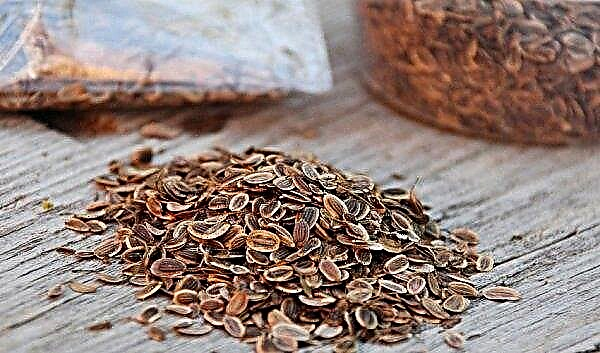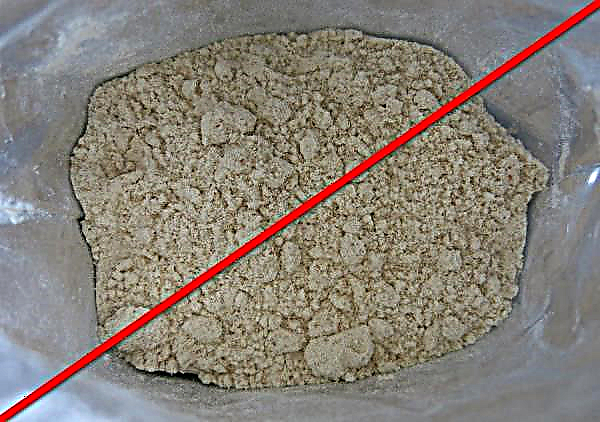Everyone who is interested in their health knows that for greater benefit and energy, food must be broken down into elements that are then absorbed by our body. More useful foods are those that have the ability to be absorbed for short periods of time, thus protecting the food system from stress and preserving the body’s energy spent on processing. Consider below what type of food carrots are and how useful it is to eat.
The chemical composition of carrots
Everyone knows that carrots are a leader among dietary products, which, along with low calorie content, is a storehouse of nutrients, vitamins and minerals. However, depending on the type (raw or boiled), the composition will vary somewhat.

Raw
Raw carrots are known to everyone for their record vitamin A content - 20 g of this product can cover the daily intake. However, it is worth noting that in carrots, as well as in other vegetables and fruits, this vitamin is contained in the form of carotene, which is transformed into vitamin A by the treatment of the liver. In addition, carrots carry a number of useful substances.
Vitamins:
| AND | type of antioxidants necessary for the normal functioning of the organs of vision, bone health, skin, hair and stable immunity2 |
| group B (B1, B2, B5, B6, B9) | participate in the normalization of the nervous and cardiovascular systems, affect the digestive tract, improve the condition of the skin and hair |
| WITH | an antioxidant that strengthens the immune system, accelerates wound healing, normalizes metabolism and the removal of toxins from the body |
| E | improves the cardiovascular system, increases the rate of elimination of toxins and positively affects the condition of the skin |
| PP | lowers cholesterol, normalizes the functioning of the nervous and digestive systems |
| N | an important participant in carbohydrate and protein metabolism, improves the activity of the nervous system |
| TO | increases blood coagulation |

In addition to vitamins, there are a set of macro-micronutrients:
- Ca (calcium);
- M (magnesium);
- K (potassium);
- Na (sodium)
- Cl (chlorine);
- P (phosphorus);
- S (sulfur);
- Fe (iron);
- Cu (copper);
- Mn (Manganese);
- I (iodine);
- Se (selenium);
- Cr (chrome);
- F (fluorine);
- B (boron);
- Mo (molybdenum);
- Co (cobalt);
- Li (lithium);
- V (vanadium);
- Al (aluminum).
All of them are participants in biochemical processes necessary for the activity of all systems of our body. Among other things, there are also dietary fiber, ash, starch, carboxylic acids, monosaccharides, disaccharides, water.
An impressive indicator of useful substances is supplemented by essential and fatty oils, which have a positive effect on the cardiovascular system and the digestive tract, as well as anthocyanins and flavonoids - biologically active substances that strengthen the cardiovascular system, as well as styrenes.
Carrots contain a sufficient amount of BJU, with the latter being a large part of the product, which makes raw carrots an indispensable tool in obtaining energy. The calorie content of this vegetable is small - 100 g of vegetable without heat treatment contains only 37.28 kcal, which corresponds to 156 kJ of energy. The amount of protein in the same volume is 1.49 g, fat - 0.19 g, carbohydrates - 7.01 g.
Boiled
Unlike raw, boiled carrots are slightly different in composition - hard fiber, which is quite difficult to digest in the stomach, turns into starch (carbohydrates) when cooked.
In addition, the amount of antioxidants in the root crop increases (almost 3 times). But vitamins after cooking almost completely disappear. At the same time, the calorie content of the product also decreases - 100 g of boiled carrots contains 25, kcal, 0.8 g of protein, 0.3 fat and 5 g of carbohydrates.
How much carrots can I eat?
Carrots have a lot of positive properties, however, like any other product, its use may be limited by intolerance to any element contained in the vegetable, an allergic reaction, or various gastrointestinal diseases.

Based on this, to cover vitamins and nutrients necessary for the body, a healthy person should eat 375 g carrots (3-4 pcs.) Per day. The children's body is limited to 80-100 g, which corresponds to 1 vegetable per day.
Important! Some excesses of vitamin A in the body will not lead to unpleasant consequences, but a large overabundance can cause adverse reactions of the body (nausea, discoloration, rashes, dizziness).
Benefits and harm to the body
- The composition of carrots provides a positive effect on the following body systems:
- Cardiovascular system - when this vegetable is eaten as a food, the walls of blood vessels strengthen, the elasticity of the heart muscle increases, cholesterol levels decrease, the possibility of developing a stroke, atherosclerosis, and varicose veins is prevented.
- Vision - substances that are part of the root crop help to cope with such ailments as: night blindness, blurred vision, pathology of the retina.
- Digestive system - recommended for digestive disorders and constipation.
- Liver and kidneys - Due to the high content of antioxidants, boiled carrots help with gallstone disease.
- Skin - carrots are widely used in cosmetology (for example, in the healing of purulent wounds, disinfection and anesthesia).
- The immune system - according to research, the systematic use of carrot juice increases the body's ability to fight colds, and also prevents the formation of cancerous tumors.
 Given the low calorie content and optimal BZHU, carrots are recommended to eat during the diet.
Given the low calorie content and optimal BZHU, carrots are recommended to eat during the diet.
- However, it should be noted that this product can also have a negative effect on the body:
- Boiled carrots contain a high level of glycemic index (75 units) - an indicator that affects blood sugar levels. Consequently, this product should be used very carefully for people with diabetes.
- The hard fiber contained in a raw vegetable is quite difficult for the body to digest, and therefore a root crop that has not undergone heat treatment should not be eaten by people suffering from gastrointestinal diseases.
How long does carrots digest
The digestion process involves a cycle of splitting food into beneficial substances. It should be understood that this procedure begins already in the oral cavity, when the products are ground by teeth and dissolved by saliva.
Further, getting into the stomach, acids and gastric juice act on the processed mass, after which, by absorption into the blood through the capillaries, the food passes through the liver, cleansing of possible poisons and toxins.

Fresh
Carrots like everyone fresh unprocessed vegetables and fruits belong to the category with an average assimilation time, which are located and processed in the stomach for about 40 minutes after swallowing food (provided there are no gastrointestinal problems).
Wherein, juice from the same vegetable, not so saturated with fiber, will be digested much faster - about 25 minutes. Further, the process continues in the small intestine (about 4 hours) and ends in the large intestine (up to 10 hours).
Did you know? Not only root crops, but also its tops are used for food — brewed as tea, added to soups and salads.
Boiled
Boiled vegetables, due to heat treatment, during which the walls of the root cells become softer, are absorbed somewhat faster. The maximum time that the stomach needs to process the cooked vegetable is about 40 minutes.

Due to the record amount of vitamins and nutrients that our body needs so much, as well as its pleasant taste, this vegetable has earned wide popularity among people who care about their health. Using this product every day, after a short period of time, you can notice positive changes both in the body and in the figure.












